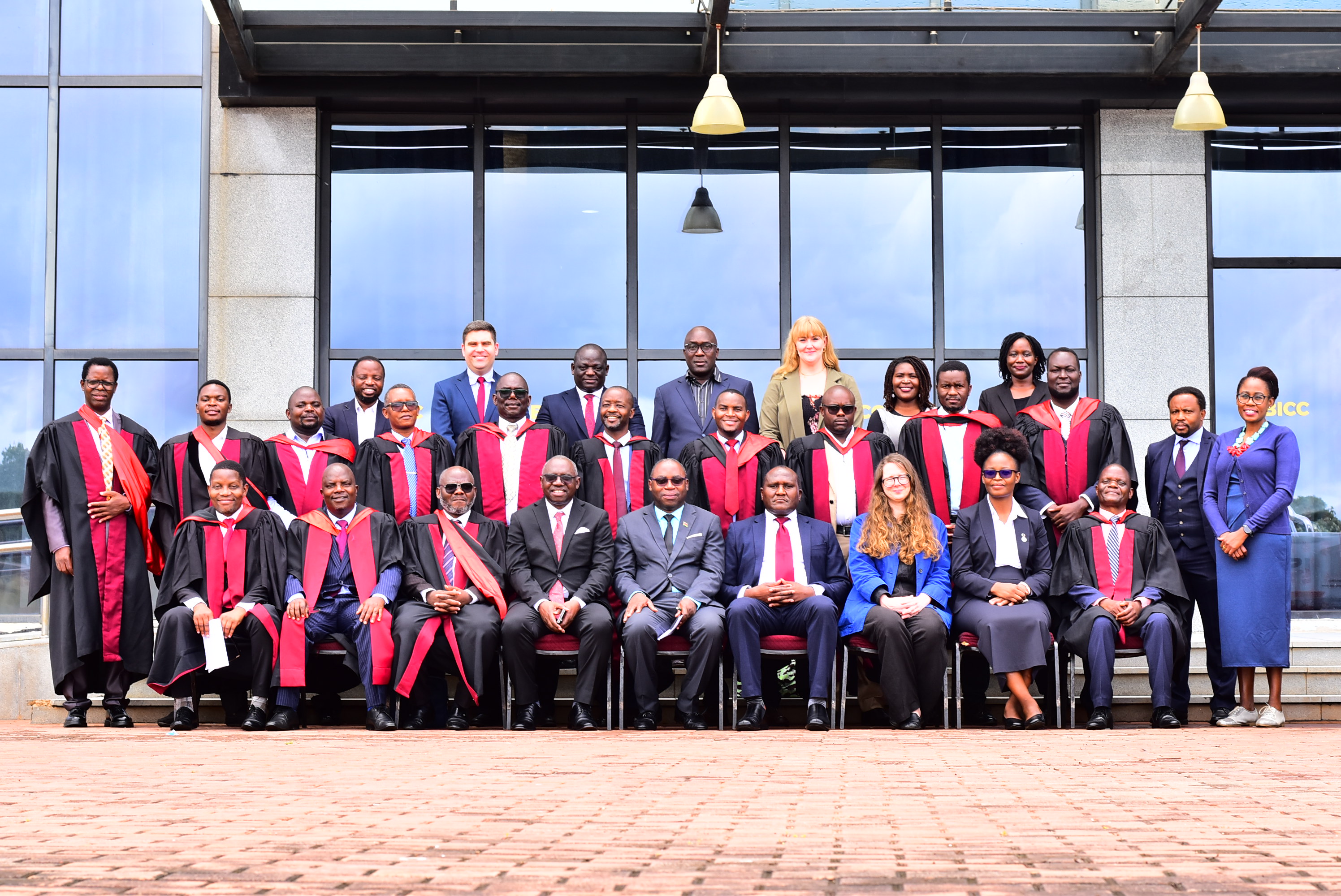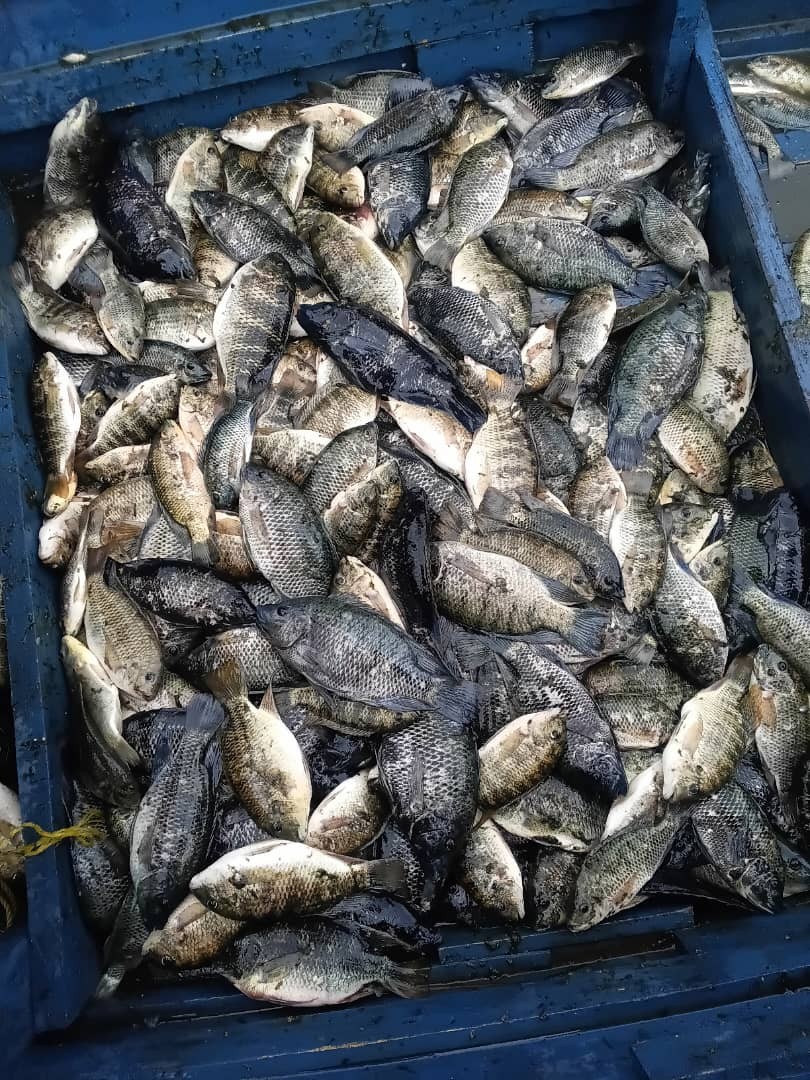A rising temperatures and overfishing threaten livelihoods. Youthful Likoma islanders are experimenting with caged fish farming which they believe can hold the key to better catches.
- Fisheries experts say fishers now travel long distances to find fish amid dwindling fortunes. Income is low with some abandoning their nets for farming and other casual labour.
- “We thought it was just a bad year, but we have had scarce fish for three years and prices keep rising. The total fish harvest in 2020 was a miserable 167,000 tonnes, a tiny fraction of 1.2 million tonnes the country should have been harvesting.” (This figure of 167,000 tonnes is likely a misinterpretation in the text from the image, where the sentence fragment is: “We thought it was just a bad year, but we have had scarce fish for three years and prices keep rising. The small fish of small fish has more than tripled,” says Inman Tembo, 25, a fisherman.” The text continues with: “The overall fishing industry has affected her business and many others.”)
- Fish is the primary source of protein and income for most lakeside communities.
- It contributes 7.2 percent to the country’s gross domestic product and employs over 80,000 people, including 700,000 fish farmers.
- The Malawi is home to over 700 fish species, including the famous Chambochire.
Research by Caroline Chinguo Munkhali shows that high temperatures and rain are taking their toll on the fishing industry.
Floating cages
- Likoma Agri-enterprise is growing of fish in a floating cage as an alternative to the dwindling fish industry and livelihoods.
- The enterprise chairperson Richard Banda says the cooperative of young fishers and women has harvested over three tonnes of doca fish and six 392-cubic-metre cages in Lake Malawi.
- Banda believes the project is the first of its kind in Malawi, with the potential to generate K500 million by June 2026.
- Six months after receiving K30 million in funds, the enterprise had high-quality fish and has created jobs for the youth.
- Fish is fabricated by AquaLink Services with support from the National Commission for Science and Technology (NCST) and Mzuzu University.
- “This is a strategic response to environmental shocks, climate change and promote resilience, economic and social to empower the local community,” says Banda.
Kazembe: supplement dwindling wild catches
- Kazembe says traditional fishing is vulnerable to erratic rainfall patterns, rising temperatures and unpredictable weather which calls for a controlled environment.
- Reducing dependence on wild stocks helps reduce poverty, induced migration, by cultivating fish in cages and tanks will also reduce pressure on wild stocks for both environmental and socio-economic needs, he narrates.
- Banda said the initiative can also boost food security, especially fish protein, amid concerns that the current trend of traditional fishing is no longer viable.
- “The initiative is environmentally acceptable… and like pond aquaculture which requires land and water resource, the cages can be deployed in lakes across the country to improve fish supply across the country’s geography,” he added.
- The enterprise chairperson Azante Manhukwe said the initiative by 15 women and 14 men is a ‘game-changer’ for both boat and dipping fish catches.
- “We have been following a steady source because the fish we get are not erratic like we are going to harvest,” he says.
- Manhukwe said the cooperative has plans to install at least 15 cages to improve the supply of fish products.
- Deputy director of fisheries at the Ministry of Agriculture, Christopher Nyasa, said aquaculture offers a promising alternative to address the declining fish catches, natural environment, and climate change.
- He said floating cages placed in natural water bodies reduce pressure on wild stocks and link to land acquisition and water management compared to pond aquaculture.
- Cage systems achieve much higher yields per unit of area, making it a more efficient fish production, he adds.
- Kazembe said the fish cages are also being used in areas related dry spells that disrupt pond-based aquaculture.
- “If properly managed, cage aquaculture can provide a much-needed food and income supplement to the dwindling wild catches, striking a balance between capture fisheries and aquaculture,” she says.
- He however, called for greater investment to scale up the number of cages and infrastructure such as access roads, ice plants and processing facilities to link producers to markets.
Potential risks
- Water quality issues due to the build-up of excess feed and fish waste.
- Poorly sited cages can disrupt ecosystems or compete with native species.
- Strong winds and storms may damage cages, while escaped fish into the wild and causing genetic dilution or competition with native species.


